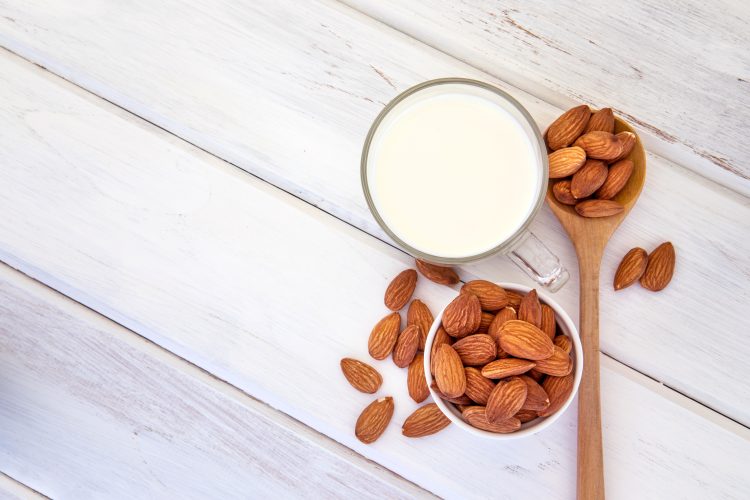Is almond milk yoghurt better for you than dairy-based?
- Like
- Digg
- Del
- Tumblr
- VKontakte
- Buffer
- Love This
- Odnoklassniki
- Meneame
- Blogger
- Amazon
- Yahoo Mail
- Gmail
- AOL
- Newsvine
- HackerNews
- Evernote
- MySpace
- Mail.ru
- Viadeo
- Line
- Comments
- Yummly
- SMS
- Viber
- Telegram
- Subscribe
- Skype
- Facebook Messenger
- Kakao
- LiveJournal
- Yammer
- Edgar
- Fintel
- Mix
- Instapaper
- Copy Link
Posted: 31 May 2023 | Grace Galler | No comments yet
When weighing up almond milk yoghurt and dairy-based milk yoghurt, researchers have found that the former packs “an overall greater nutritional punch”.


The results of a nutritional comparison revealed that almond milk yoghurt has a “significantly higher nutrition density” when compared to dairy-based milk yoghurt and all other plant based yoghurts.
The research was carried out by a food science major at the University of Massachusetts Amherst, who compared 612 plant-based and dairy yogurts.
“Plant-based yoghurts overall have less total sugar, less sodium and more fibre than dairy, but they have less protein, calcium and potassium than dairy yoghurt,” said Lead Author Astrid D’Andrea.
“But when looking at the overall nutrient density, comparing dairy yoghurt to plant-based yogurt, with the nutrients that we looked at, almond yogurt has a significantly higher nutrient density than dairy yoghurt and all other plant-based yoghurts.”
Along with Senior Author Alissa Nolden, a Sensory Scientist and Assistant Professor of Food Science, D’Andrea carried out the study after finding the area of research to be “lacking”.
To carry out the study, the researchers collected the nutritional information of 612 yoghurts via a database. The yoghurts analysed were launched between 2016 and 2021. In addition, D’Andrea used the Nutrient Rich Foods (NRF) Index, which assigns scores based on the nutrient density of foods.
Of the 612 yoghurts analysed, 159 were full-fat dairy, 303 were low- and non-fat dairy, 61 were coconut, 44 were almond, 30 were cashew and 15 were oat.
One in three Brits drink plant-based milk as oat overtakes almond
The researchers then used the NRF Index to rank the yoghurts from the highest to lowest nutrient density. Results saw the yoghurt variations ranked in the following order: almond, oat, low- and non-fat dairy, full-fat dairy, cashew and coconut.
Overall, D’Andrea attributed the high scores of almond and oat yoghurts to their low levels of total sugar, sodium and saturated fat.
Going forward, the researchers said that the findings can be used to inform the food industry on ways to improve the formulation and nutritional composition of plant-based yoghurts.
In fact, the researchers suggested creating a hybrid yoghurt that is both plant- and dairy-based.
“This will add protein, vitamin B12 and calcium while still minimising total sugar, sodium and saturated fat,” they said.
“Blending provides advantages. It provides a complete protein, and the dairy part helps to form the gelling structure within the yoghurt that so far we are unable to replicate in a plant-based system. If we can blend plant-based and dairy yogurt, we can achieve a desirable sensory profile, a potentially better nutritional profile and have a smaller impact on the environment,” Nolden concluded.
Related topics
Health & Nutrition, Quality analysis & quality control (QA/QC), Research & development, The consumer, World Food









